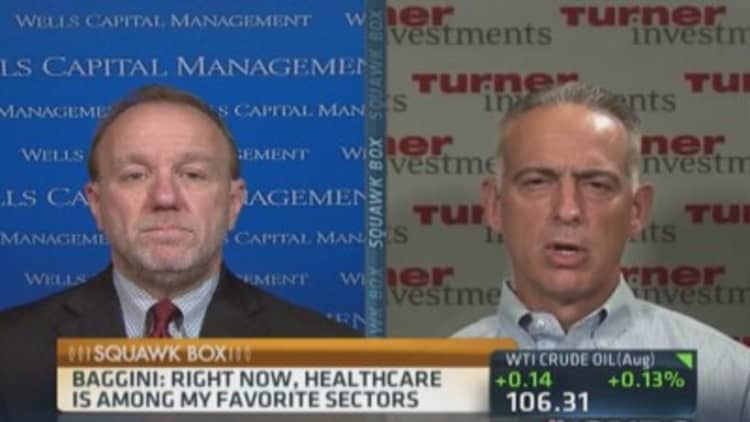
"Runaway inflation" poses the biggest risk to the five-year bull market in stocks, James Paulsen, chief investment strategist at Wells Capital Management, told CNBC on Tuesday. But he put the chances of prices wildly spiraling at about 20 percent.
"If inflation was really getting out of control, you'd have to go then to cash or low-duration bonds or real estate or commodities," Paulsen said in a "Squawk Box" interview. "But I'm not there yet at all. I don't see that as the most likely outlook at the moment."
The prospect for the Dow Jones industrial average breaking through the 17,000 level is still close at hand, but small losses Monday for the blue-chip average and the ended a six-session winning streak.
Read MoreFed gives stocks 'green light': Siegel
Paulsen said he's trying not to get too bogged down in short-term stock market moves—reiterating a message he's been preaching for some time now: "The market has a ways to go still in the next few years, even if it has a correction here over the next several months."
But with possible turbulence in the near future, he is advising investors to do some reshuffling. "I'd stay overweight stocks. But I would start to diversify a little bit away from cyclicality."
Paulsen likes material stocks because he thinks they "might do well with inflation fear." He also likes technology stocks that "might do well with the capital spending starting to perk up."
"I'd also start to look at buying defensives, like the staple stocks," he added. "If bond yields start moving up, I'd look at buying utilities."
Read MoreFed has it wrong: Strategist
Paulsen sees opportunities overseas as well. "I don't think that Japan and Europe, for example, are going to suffer from overheat fears, even if the U.S. does."
"I like the emerging markets," he continued, "because they are on a completely different cycle here, after underperforming for the last two years and [are] now bottoming out."
—By CNBC's Matthew J. Belvedere


